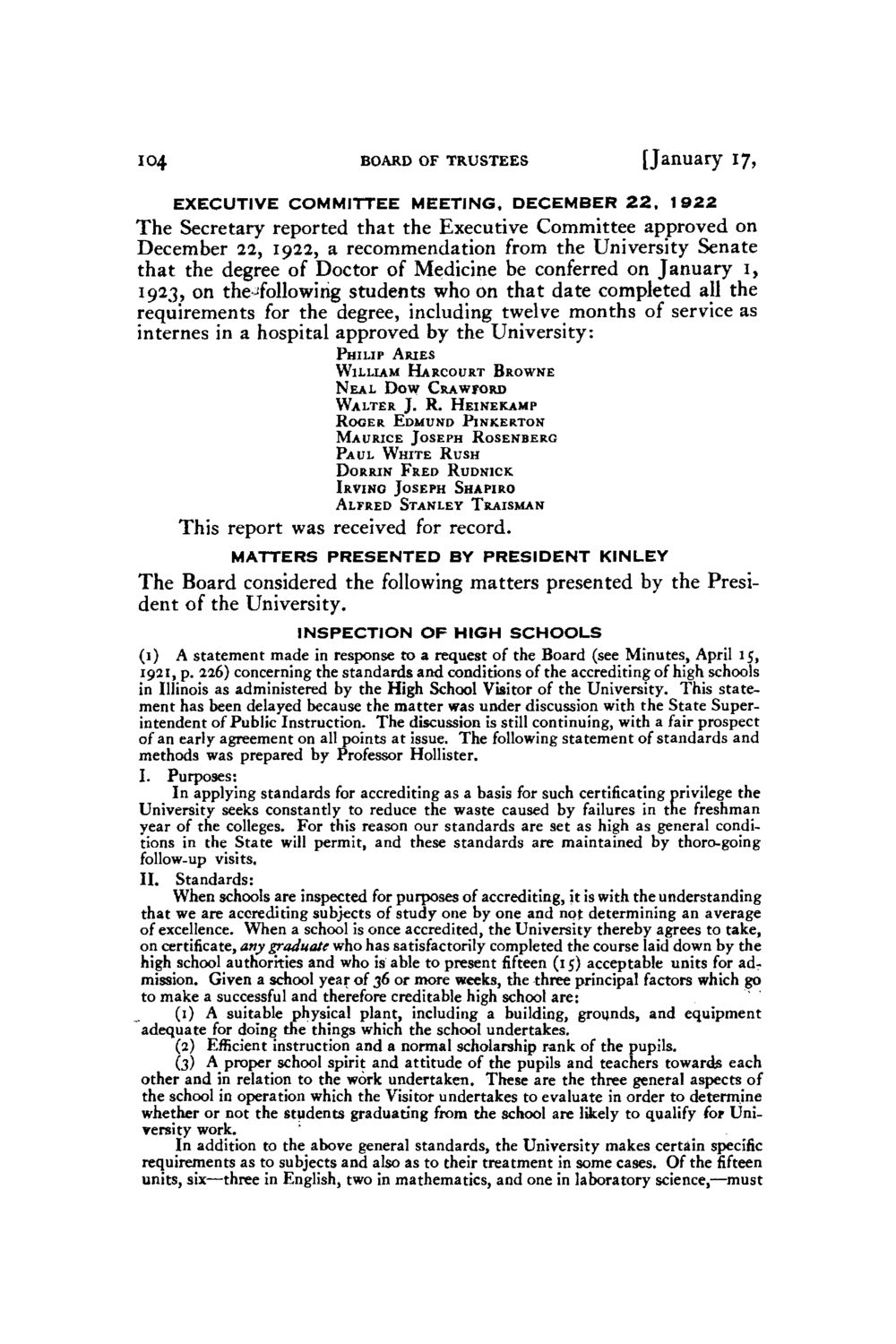| |
| |
Caption: Board of Trustees Minutes - 1924
This is a reduced-resolution page image for fast online browsing.

EXTRACTED TEXT FROM PAGE:
104 board of trustees [January 17, EXECUTIVE COMMITTEE MEETING, DECEMBER 22, 1922 The Secretary reported that the Executive Committee approved on December 22, 1922, a recommendation from the University Senate that the degree of Doctor of Medicine be conferred on January 1, 1923, on the^following students who on that date completed a l the l requirements for the degree, including twelve months of service as internes in a hospital approved by the University: Philip Aries William Harcourt Browne Neal Dow Crawford Walter J. R. Heinekamp Roger Edmund Pinkerton Maurice Joseph Rosenberg Paul White Rush Dorrin Fred Rudnick Irvino Joseph Shapiro Alfred Stanley Traisman This report was received for record. MATTERS PRESENTED BY PRESIDENT KINLEY The Board considered the following matters presented by the President of the University. INSPECTION OF HIGH SCHOOLS (1) A statement made in response to a request of the Board (see Minutes, April 15, 1921, p. 226) concerning the standards and conditions of the accrediting of high schools in Illinois as administered by the High School Visitor of the University. This statement has been delayed because the matter was under discussion with the State Superintendent of Public Instruction. The discussion is still continuing, with a fair prospect of an early agreement on all points at issue. The following statement of standards and methods was prepared by Professor Hollister. I. Purposes: In applying standards for accrediting as a basis for such certificating privilege the University seeks constantly to reduce the waste caused by failures in the freshman year of the colleges. For this reason our standards are set as high as general conditions in the State will permit, and these standards are maintained by thoro-going follow-up visits. II. Standards: W h e n schools are inspected for purposes of accrediting, it is with the understanding that w e are accrediting subjects of study one by one and not determining an average of excellence. W h e n a school is once accredited, the University thereby agrees to take, on certificate, any graduate w h o has satisfactorily completed the course laid down by the high school authorities and w h o is able to presentfifteen(15) acceptable units for adr mission. Given a school year of 36 or more weeks, the three principal factors which go to m a k e a successful and therefore creditable high school are: (1) A suitable physical plant, including a building, grounds, and equipment adequate for doing the things which the school undertakes. (2) Efficient instruction and a normal scholarship rank of the pupils. (3) A proper school spirit and attitude of the pupils and teachers towards each other and in relation to the work undertaken. These are the three general aspects of the school in operation which the Visitor undertakes to evaluate in order to determine whether or not the students graduating from the school are likely to qualify for University work. In addition to the above general standards, the University makes certain specific requirements as to subjects and also as to their treatment in some cases. O f the fifteen units, six—three in English, two in mathematics, and one in laboratory science,—must
| |